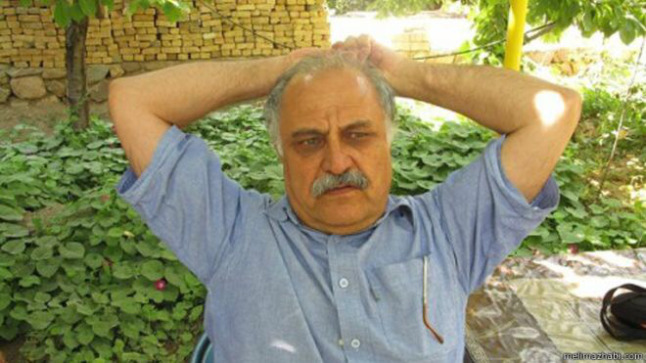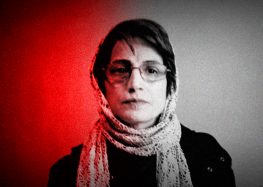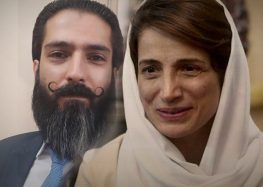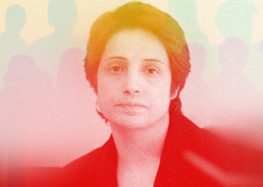Elderly Political Prisoner’s Early Release Blocked Despite Supreme Leader’s Decree

Seventy-two-year-old political prisoner Mohammad Hossein Rafiee has threatened to go on hunger strike if the authorities continue to block his pardon from prison, his daughter told the International Campaign for Human Rights in Iran.
“Sometimes we are told that the Intelligence Ministry is in charge of my father’s case and that they are against his freedom or release on furlough [temporary release], and at other times we hear that the Tehran prosecutor opposes his release,” said Rafiee’s daughter, Ana Maryam Rafiee.
“My father is 72-years-old and has served more than a fifth of his sentence. He therefore qualifies [for early release] according to the supreme leader’s pardon,” said Ana Maryam Rafiee in an interview with the Campaign. “Judge [Morteza] Nasiripour, who is in charge of the Sentence Enforcement Unit in Evin Prison, had a meeting with my father in prison and told him that he believes he should go free. The judge sent a request to the Tehran prosecutor, but he has still not received a response after almost three months.”
Rafiee qualifies for early release based on a March 31, 2016 decree issued by Iran’s supreme leader, Ali Khamenei, which pardons male prisoners over the age of 65 and female prisoners over 55 if they have served at least one-fifth of their sentence. But either the Judiciary or the Intelligence Ministry is standing in the way of the freedom of Rafiee, a former chemistry professor and member of the banned peaceful political opposition group, the National-Religious Alliance (Melli-Mazhabi).
Technically, only the Judiciary should handle Rafiee’s case, but since political prisoners’ cases are usually handled from start to finish by the Intelligence Ministry—one among several factors that have eroded the Judiciary’s independence—Rafiee could still be in prison because intelligence agents are actively preventing his release.
In a letter addressed to Prosecutor General Mohammad Javad Montazeri, dated June 13, 2016, Mohammad Hossein Rafiee requested to be released based on the supreme leader’s pardon, which he believed had been ignored by Tehran’s Chief Prosecutor Abbas Jafari Dowlatabadi.
“Considering I’m in the seventh decade of my life and sick with several illnesses, do you think it would be right if I went on hunger strike to get your attention?” he said.
Rafiee’s daughter told the Campaign that her elderly father has no other choice but to start a hunger strike.
“My father is old and ill and if he goes on another hunger strike, who knows what calamity would befall him,” she said.
Furlough Requests Denied
Ana Maryam Rafiee also told the Campaign that her father could rightfully request furlough three days per month, but that the authorities had rejected all of his requests.
“Even when my mother was sick, they opposed his furlough,” she said. “Then, about a month ago, we were surprised to hear that he had been told that his request for a three-day furlough had been approved. We waited outside the prison for my father to come out, but then we were told that the Intelligence Ministry had opposed his release.”
Ana Maryam Rafiee added that her father requires medical supervision because of his advanced varicose veins, which increases the possibility of blood clots in the brain and heart, but her father has not received medical care outside the prison. He also suffers from blurred vision, thyroid problems and the occasional numbness of his right hand.
Political prisoners in Iran are singled out for harsh treatment, which often includes denial of medical care.
Mohammad Hossein Rafiee was arrested by Intelligence Ministry agents in Tehran on June 16, 2015. He was charged with holding membership in “an illegal and anti-security organization known as the Nationalist-Religious Alliance,” “propaganda against the state” and “using satellite equipment in his home,” and sentenced to six years in prison. He was also banned from political and media activities for two years.






